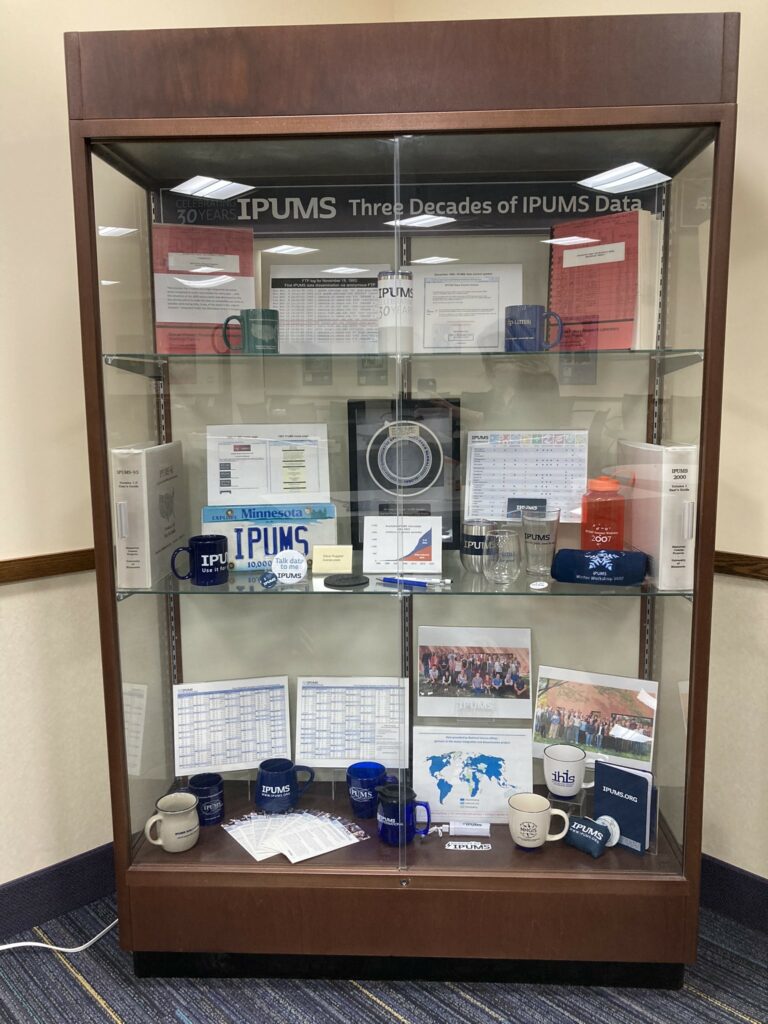By Diana L. Magnuson; Curator and Historian, ISRDI

“Celebrating 30 Years: Three Decades of IPUMS Data,” the current exhibit at ISRDI Headquarters, highlights thirty years of data innovation at the University of Minnesota. In the late 1980s, the Social History Research Laboratory at the University of Minnesota’s History Department proposed “the creation of a single integrated microdata series composed of public use samples for every year … with the exception of the 1890 census, which was destroyed by fire.” The primary aim was to make the U.S. census microdata “as compatible over time as possible while losing little, if any, of the detail in the original datasets.” (Integrated Public Use Microdata Series: A Prospectus).
Steven Ruggles remembers the moment he went into the History Department lounge on the sixth floor of the Social Science Tower and said, “IPUMS! Integrated Public Use Microdata Series! Isn’t that a great idea?” The response from the graduate research assistants was not enthusiastic. “What a terrible name! You can’t call it that!” According to Ruggles, “It was universal; everyone thought it was just a horrible name … It wasn’t a bad idea to propose, just a terrible thing to call it.” After a brief quandary over pronunciation (Ī-pŭms or Ĭ-pŭms), the name has stuck and is now synonymous with social research, data innovation, and free access. And for the record, we don’t care how you pronounce it, just as long as you cite it!

